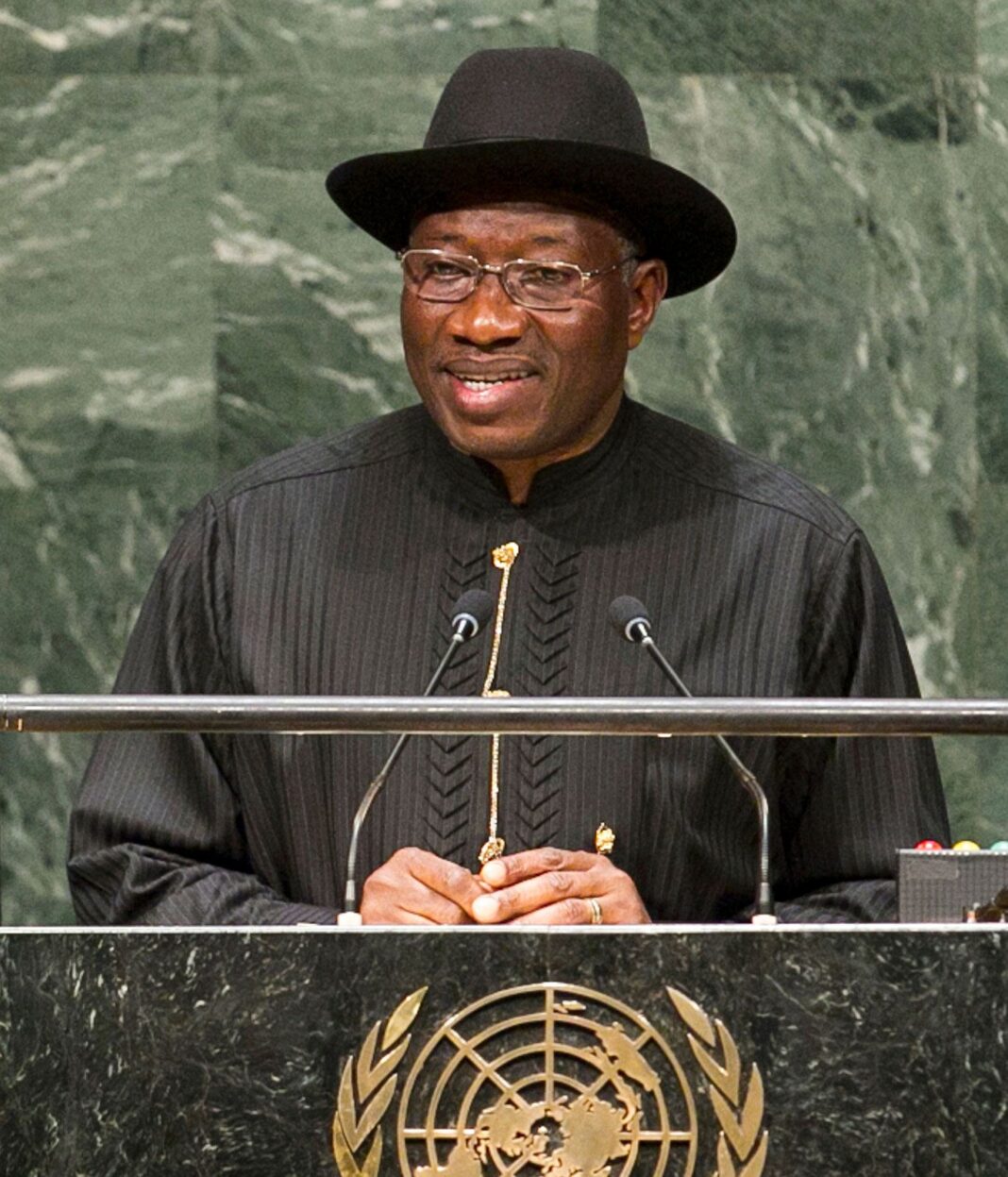Former President Goodluck Ebele Jonathan is safe and has left Guinea-Bissau following a military coup that toppled the country’s government, the Nigerian Federal Government confirmed on Thursday.
Spokesperson for the Ministry of Foreign Affairs, Kimiebi Ebienfa, told journalists in Abuja, “Former President Goodluck Ebele Jonathan is very safe and out of Guinea-Bissau. He left on a special flight with members of his delegation, including Mohamed Chambas.”
Jonathan had been in Guinea-Bissau leading the West African Elders Forum Election Observation Mission during last Sunday’s presidential and legislative elections when the military seized power.
Earlier, the House of Representatives urged President Bola Tinubu’s administration to take urgent diplomatic action to ensure Jonathan’s safety. Deputy Speaker Benjamin Kalu described it as an “important emergency,” while House Leader Prof. Julius Ihonvbere highlighted Jonathan’s extensive experience as an election observer in countries such as Zimbabwe, Liberia, Ghana, Mozambique, Pakistan, Tanzania, and South Africa.
Minority Leader Kingsley Chinda also supported the call, describing Jonathan as “one of the best civilian presidents” Nigeria has produced and stressing that every Nigerian’s life, whether a former president or not, should be protected. Following the discussion, the House unanimously passed a resolution urging the Federal Government to employ all diplomatic channels for Jonathan’s safe return.
The coup in Guinea-Bissau unfolded on Wednesday, with military officers declaring “total control” of the country. Incumbent President Umaro Sissoco Embaló was arrested, the electoral process suspended, borders closed, and a curfew imposed. Reports of heavy gunfire near the presidential palace and attacks on the National Electoral Commission by unidentified armed men were confirmed.
The military cited “national instability” and “electoral irregularities” as justification for its actions. Opposition leader Domingos Simões Pereira and several senior officials, including the chief of staff and minister of the interior, were also detained.
Nigeria strongly condemned the coup, calling it a threat to democracy and regional stability. The Ministry of Foreign Affairs stated, “This act undermines democratic progress and constitutional order in Guinea-Bissau and the West African sub-region. It violates the ECOWAS Protocol on Democracy and Good Governance, which rejects unconstitutional ascension to power.”
Jonathan, along with former Mozambique President Filipe Nyusi and ECOWAS Election Observation Mission head Issifu Kamara, condemned the military takeover, calling it “a direct attempt to disrupt Guinea-Bissau’s democratic process” and urging calm among residents.
On Thursday, the military appointed General Horta N’Tam, the army’s chief of staff, to lead the country for one year. N’Tam, previously close to President Embaló, said, “These actions are necessary to block operations that threatened our democracy.”
Guinea-Bissau, one of the world’s poorest countries and a hub for drug trafficking between Latin America and Europe, has experienced repeated political instability, including four successful coups since independence in 1974. The 2025 elections were held amid heightened security, with over 6,700 personnel deployed, including members of the ECOWAS Stabilisation Force.
The international community has expressed concern. UN Secretary-General António Guterres is “following the situation with deep concern,” while Portugal called for restraint. Reporters Without Borders criticized the suspension of media operations as a serious violation of the right to information. ECOWAS and the African Union condemned the coup, reaffirming their zero-tolerance stance on unconstitutional changes of government.
Nigeria reaffirmed its commitment to working with regional and international partners to restore constitutional order in Guinea-Bissau. Ebienfa stated, “Nigeria, as a key member of ECOWAS and the African Union, will take all necessary measures to ensure a swift return to constitutional governance, promoting democracy, peace, and stability across Africa.”



